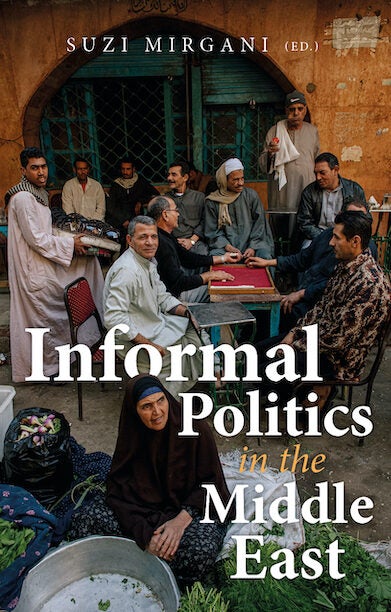Informal Politics in the Middle East

To cite this publication: Suzi Mirgani, ed. Informal Politics in the Middle East (Oxford University Press/Hurst, 2021).
The culture of politics within any system of governance is influenced by how state and society interact, and how these relationships are mediated by existing political institutions, whether formal or informal. The chapters in this volume highlight two broad types of informal political engagement in the Middle East: civil action that works in tandem with the state apparatus, and civil action that poses a challenge to the state. In both cases, these activities can and do achieve tangible results for particular groups of people, as well as for the state. For many, informal politics and civil mobilization are not a choice, but a necessity to secure—collectively—some kind of social security, through communal reciprocity and everyday activism. Ironically, Middle Eastern authorities often turn a blind eye to informal organizing, because ‘self-help’ schemes allow certain social groups to survive—reducing their instinct to make demands of, or seek support from, the state. People are discouraged from political action and dissent; yet they are simultaneously encouraged to seek their own betterment, often leading to politicized groups and associations. By analyzing these formations, the contributors shed light on informal politics in the region.